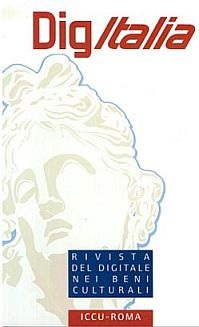I libri Sapienza parlano. Un progetto per l’accessibilità dei libri della Sapienza alle persone con disabilità visive e DSA
DOI:
https://doi.org/10.36181/digitalia-00095Parole chiave:
Terza missione, disabilità visive, DSA, AccessibilitàAbstract
L’articolo illustra il progetto di terza missione della Sapienza Università di Roma I libri Sapienza parlano, indicandone genesi, finalità, fasi di sviluppo e attività realizzate. Il progetto intende fornire alle persone con disabilità visive e DSA, anche non appartenenti alla comunità Sapienza, versioni in formati accessibili dei libri presenti nelle biblioteche di ateneo. Sapienza Università di Roma ha già ottenuto l'autorizzazione a effettuare copie accessibili grazie all'eccezione al diritto d’autore in favore di alcune categorie di beneficiari.
Downloads
Downloads
Pubblicato
Come citare
Fascicolo
Sezione
Licenza
Copyright (c) 2024 Laura Armiero, Gianfranco Crupi, Angela Di Iorio, Loredana Di Lucchio, Agnese Galeffi, Alessandra Gulotta, Roberto Raieli, Valentina Rovacchi

Questo articolo è soggetto a licenza Creative Commons Attribution-ShareAlike 3.0 Unported License.
Gli Autori che pubblicano su questa rivista accettano le seguenti condizioni:
- Gli Autori mantengono i diritti di proprietà intellettuale sulla loro opera e cedono alla rivista il diritto di prima pubblicazione dell'opera, sotto la seguente licenza: Attribuzione - Condividi allo stesso modo 3.0 Italia (CC BY-SA 3.0 IT). Tale Licenza permette ad altri di condividere l'opera indicando la paternità intellettuale e la prima pubblicazione su questa rivista.
- Gli Autori possono aderire ad altri accordi di licenza non esclusiva per la distribuzione della versione dell'opera pubblicata (es. depositarla in un archivio istituzionale o pubblicarla in una monografia), a patto di indicare che la prima pubblicazione è avvenuta su questa rivista.
- Gli Autori possono diffondere la loro opera online (es. in repository istituzionali o nel loro sito web) dopo la pubbicazione, poiché può portare a scambi produttivi e aumentare le citazioni dell'opera pubblicata (Vedi The Effect of Open Access).






